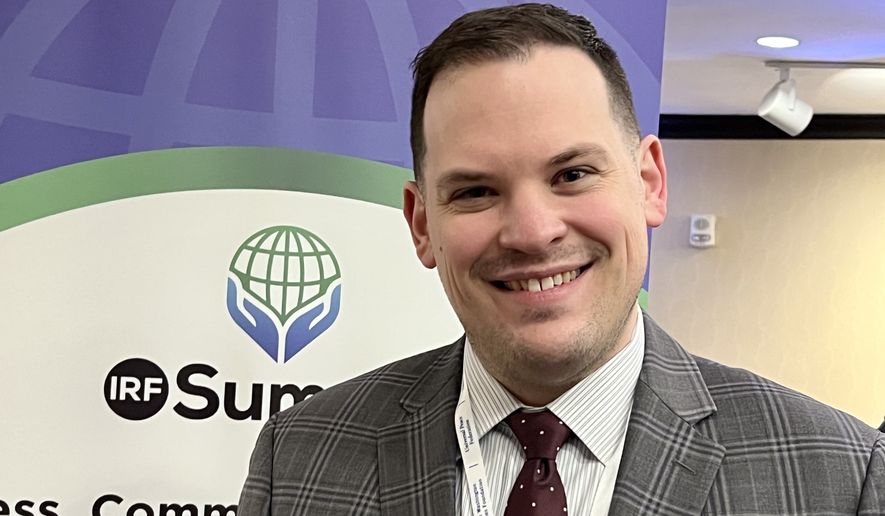Nonbelievers advocate for religious freedom because the right to believe or not to believe must be protected from regimes that would persecute those who disagree with them, an atheist leader says.
“So many of the people who are subjected to the sort of discrimination and persecution that happens around the world are people that are advocating for changes from repressive religious regimes, and many of them are atheists or non-religious or unaligned people or even reformers within a faith that are classed as atheists sometimes,” American Atheists President Nick Fish said in an interview at the International Religious Freedom Summit 2023.
That a leader of an atheist organization will speak at a religious freedom summit may seem as jarring as having a vegan address a cattleman’s convention. But Mr. Fish says the conference’s avowal of “religious freedom for all” must include atheists in the conversation.
“We think it’s really important to be part of this, and I really appreciate that organizers reached out to us because they recognize that as well the fact that, you know, somewhere between 20% and 30% of the world’s population are non-religious,” he said.
Between 5% and 7% of Americans self-identify as atheists, but “If you ask people, ‘Do you believe in God?’ That number rises to 10% to 15%,” he said.
Mr. Fish said atheism has become more accepted in the United States in the decades since the late Madalyn Murray O’Hair founded the group in 1963. Global acceptance has been a little more difficult to come by, he said.
“There are about a dozen countries in the world where apostasy or blasphemy is, at least in theory, subject to the death penalty,” he said.
“It’s not just repressive religious regimes where there’s discrimination ,” Mr. Fish said, adding that other nations stigmatize atheism or privilege religion, posing problems for atheists.
“It is it’s Western European nations as well were in for example, in the Republic of Ireland, something like 95% of schools are religiously affiliated. In a country where almost half of people are non-religious,” he said.
“We’re seeing that religion is being weaponized to keep people in line not not that just from a religious perspective, but in protecting the regime, under the auspices of religion,” he said. “I think there are many, many new challenges but the openness of the world the easy sharing of information does give me cause for optimism, though we still have to stay vigilant, obviously.”
• Mark A. Kellner can be reached at mkellner@washingtontimes.com.




Please read our comment policy before commenting.